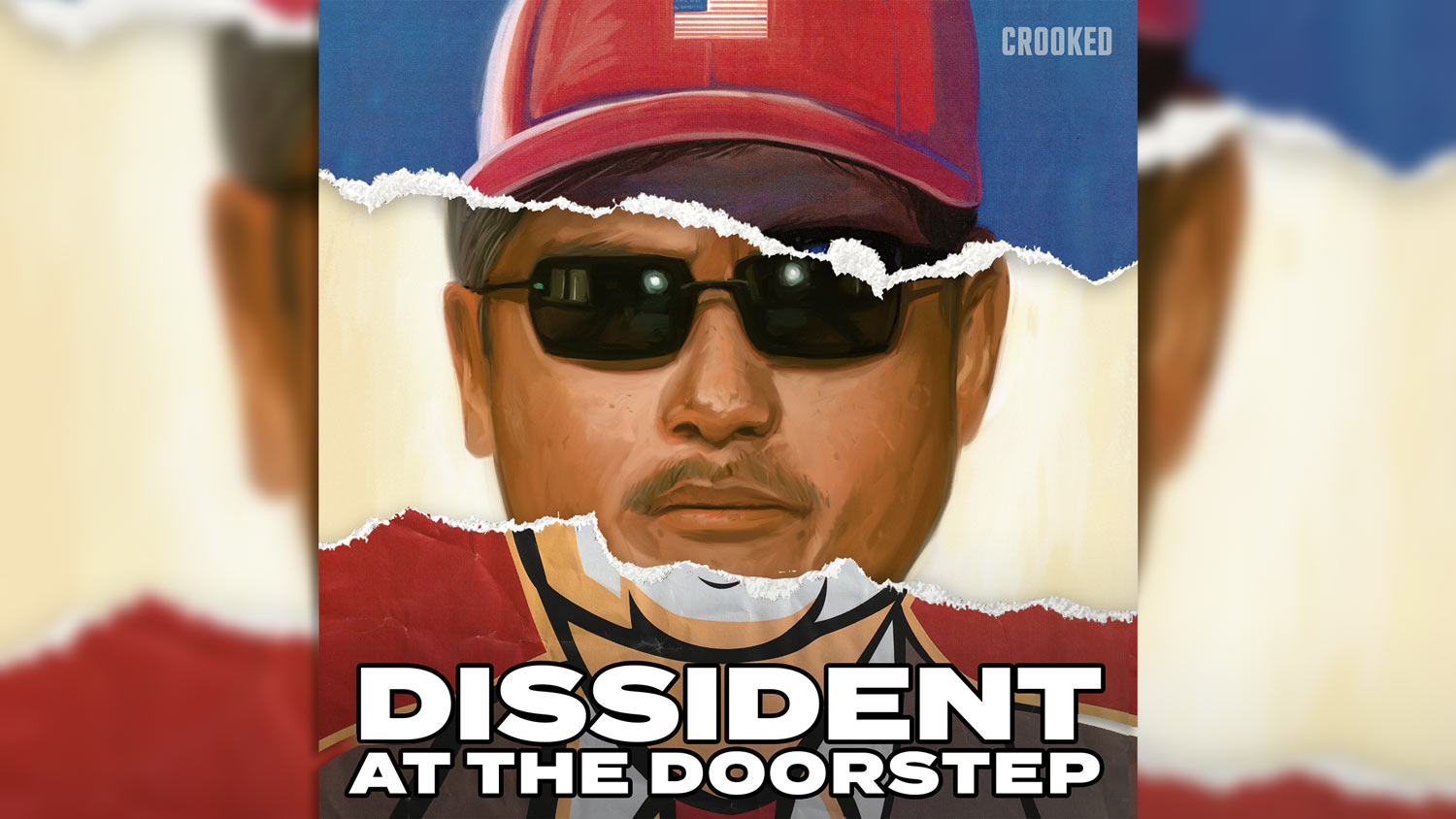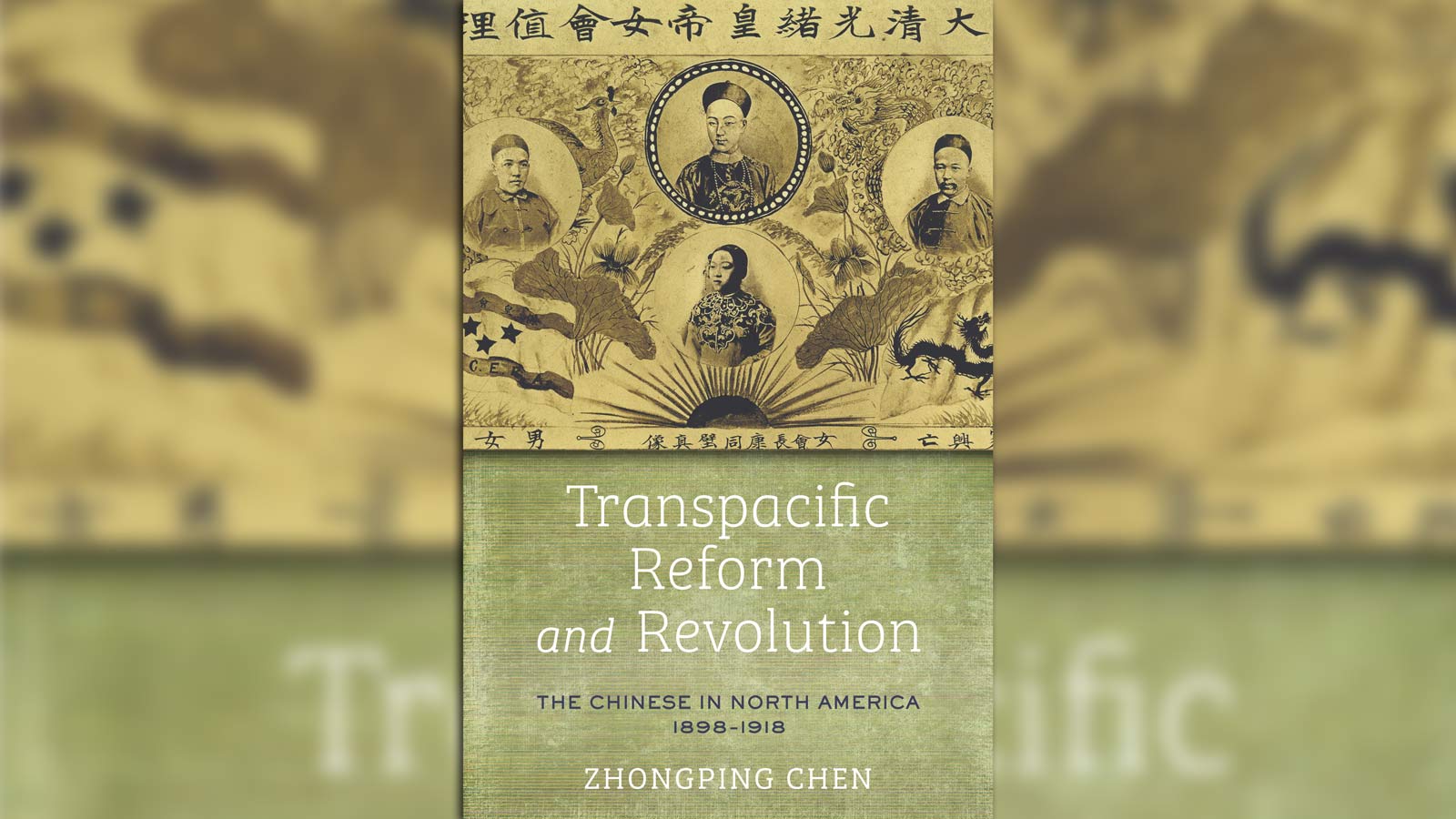Of Rose-Coloured Glasses, Old and New
Qualcuno era comunista perché vedeva la Russia come una promessa
la Cina come una poesia, il comunismo come il paradiso terrestre.
— Giorgio Gaber
On 18 September 2021, the Qiao Collective co-organised an all-day conference on the topic of ‘China and the Left: A Socialist Forum’ (The People’s Forum 2021). The speakers, who participated either in person or via Zoom, included scholars of China but also noted ‘leftist’ intellectuals, from Vijay Prashad to Roxanne Dunbar-Ortiz and Radhika Desai. The forum was co-sponsored by the Monthly Review, the People’s Forum, and Codepink. The Qiao Collective (2021)—a ‘volunteer-run group of diaspora Chinese writers, artists, and researchers working to challenge escalating Western imperialism on China’—has in the past two years evolved from a Twitter account to a full-blown online publication and has become a loud pro-China voice in the United States and in global political discourse. While the various presenters at the forum took different approaches, and some arguments were more nuanced than others, the overall tone was very supportive of the current regime in the People’s Republic of China (PRC) and extremely critical of US policies in Asia as well as of Western media coverage of China. Events like this exemplify what seems to be an increasingly visible and vocal presence of pro-PRC positions within the so-called left, in the United States but also worldwide.
These positions, often subsumed under the disparaging moniker ‘tankie’—a term that was originally used to describe leftists who supported the line of the Communist Party of the Soviet Union under Joseph Stalin, with specific reference to those who supported the deployment of Soviet tanks to suppress the Hungarian revolution of 1956—present historians with the second instance in which ‘China’ has featured as a politically significant conceptual category for activists around the world. The first such instance was, of course, the long 1960s, when, as Italian actor, singer, and songwriter Giorgio Gaber jokingly remembered in the epigraph above, ‘some were communists because they saw Russia as promise, China as poetry, and communism as heaven on earth’. Then, as today, sympathy for the People’s Republic was inspired by and inextricably connected to an anti-imperialist stance—specifically, US imperialism. In the 1960s, US imperial policy manifested its most brutal and evident expression in Asia, with the Indochina War. In that context, the position of the Chinese Communist Party (CCP) in support of Vietnam, and the very constitutive character of the PRC as an anticolonial state, made it possible for anti-imperialist radicals around the world to see China as a viable, peaceful alternative not only to the United States but also to the Cold War duopoly in general. Today, when a ‘new Cold War’ has been all but declared and the US Government aims to complete its long-heralded ‘pivot to Asia’, the PRC, soon to be the largest economy in the world, has come to represent for some the only possible adversary to US imperial domination—the only power capable of resisting and perhaps thwarting American plans. For many on the left, the fascination with China, in the long 1960s as well as today, originated in what were very much US-centric concerns.
Reappraising Global Maoism
For radicals in the 1960s, however, and for the tankie left of our day, anti-imperialism was and is only the initial step, and only one facet of a ‘leftist’ political positioning. The long 1960s witnessed the emergence of what is usually called ‘Global Maoism’, when French students called themselves Chinois and the Black Panthers hawked copies of the Little Red Book on Telegraph Avenue (Lanza 2019; Evans 2021). Today, in the analysis of the Qiao Collective, US imperialism is the main perpetrator of mass murders and human rights violations (an argument with which one could easily agree), and the PRC is the only significant bulwark against it. In Qiao’s view, China is not just an economic competitor in the global capitalist system, but also represents an existing socialist alternative, ‘an anti-imperialist, socialist nation’, whose true nature Westerners are prevented from seeing clearly because of ideological blinders—a kind of false consciousness caused by US global hegemony (Qiao Collective 2021). China, in this perspective, was, is, and has always been socialist and Deng Xiaoping’s marketisation did not configure a deviation from Mao Zedong’s socialist policies but rather an innovative step on the road to achieving socialism (Hioe 2020).
In recent years, the experiences of those who looked at China in the 1960s with a hopeful if overly rosy gaze have been objects of historical reappraisal. But the dominant assessment of Global Maoism maintains it was nothing more than an infantile, romantic fascination, which was, at best, productively outgrown and, at worst, reneged on (Wolin 2017; Lovell 2019). One could be tempted to dismiss today’s tankie approach to China in the same way—as an echo of that history. I have argued (along with several others) that we should take Maoism (and Global Maoism) seriously, meaning we should consider it a politics that people embraced not as a pure mirage, but as a theory and a praxis that responded to both universal and localised issues (Lanza 2017). I would also argue that we should take the current pro-China stance seriously, even though I believe it is wrong and possibly delusional. It nevertheless reveals something about the current situation and the possibilities for a global leftist movement. Yet these two pro-China stances—that of the 1960s and that of today—are not similar in any meaningful way. This is not just because they developed under very different historical and political contingencies, which they did, but also because they embody radically different (or rather antithetical) political positions. That the pro-China stance is now embraced by intellectuals and activists who have a direct connection to the longer history of the global left—Prashad’s Tricontinental Institute links back to the history of the Non-Aligned Movement, while Roxanne Dunbar-Ortiz’s own history of activism dates back to the 1960s—is revelatory of a crisis on the left and the general collapse of its sets of references, more than of any actual similarity between this moment and that of the 1960s.
At the Roots of the Fascination with Maoist China
Let’s first look at what made Maoist China, especially the China of the Great Leap Forward and the Cultural Revolution, attractive to anticolonial fighters in Africa, students in Turin and San Francisco, and workers in Paris. This is, of course, a story of rose-coloured glasses, wilful credulity, Potemkin villages, and very well-arranged trips to promised lands; there was plenty of illusion and delusion. That said, however, I have argued—along with Fredric Jameson (1984) and others—that Maoism was central to and foundational in shaping the global activism of the long 1960s, because the experience of the Maoist revolution ‘made sense’ to intellectuals, students, revolutionaries, and rebels within their own historical circumstances. First and foremost, China offered the example of a revolution among a non-European, non-white people who were avowedly anticolonial and anti-imperialist (at least until 1972 and the Nixon rapprochement). It was a revolution waged by peasants who triumphed despite adverse political, strategic, and historical conditions. In that, the Chinese Communist Revolution offered inspiration to anticolonial movements globally, including Black Liberation activists in the United States, who saw themselves as part of the global struggle of the colonised against the (white) colonisers (Kelley and Esch 1999; Frazier 2015).
At a time when capitalism was undergoing its first postwar crisis and Soviet developmentalism looked much less promising, Maoist China also seemed to be experimenting with an alternative economic model—one in which industrialisation and enrichment could be pursued in a more humane and more equalitarian fashion. That search for an economic alternative failed, and it failed tragically, as the disaster following the Great Leap showed. But it was a sincere, shared, and stubborn quest nonetheless—one that engaged with crucial problems of socialist political economy (wages, the law of value, forms of ownerships) through both theoretical debate and practical experimentation. This was also connected to a more general and radical critique of the production of knowledge. Since the Yan’an period (1935–47) and especially through the principle of the ‘mass line’, Maoism embodied a new epistemology, based on the principle of radical equality vis-a-vis knowledge, which ultimately claimed for the peasant, the worker, and the illiterate revolutionary the prerogative to engage in literature, art, science, management, and politics—a prerogative no longer reserved for the artist, the intellectual, the expert, or the politician (Smith 2021). The Cultural Revolution, then, represented just the most radical and direct attack by students on the established locations of the production of knowledge: the school system, its stultifying effects, its lingering class bias, its inherent inequality. Students around the world, from Berkeley to Nanterre, recognised the struggle of their Chinese peers and adopted the moniker of ‘red guards’ in their own radical critique.
Finally, the Cultural Revolution challenged the position of the Communist Party itself. When independent organisations were allowed to rise outside the CCP (to stage an attack against the establishment) and workers took over directly (if briefly) the government of Shanghai, that signalled that the party was not any more the privileged location for politics nor was it the true and sole representative of the ‘working class’. That crisis inspired and was refracted in the crisis of ‘leftist’ parties and workers’ organisation all over the world, to the point that, by the end of the 1970s, any political project based on a unified working class and its organised representation seemed to have been completely exhausted.
In all these (and other) ways, Maoism was at the centre of the political upheaval and the radical criticism of the long 1960s, but it did not function as a model to be pedantically followed or an example to be imitated, in part because Maoism itself was predicated on a flexible and continuous adaptation of Marxist principles to the local and historical contingencies of and in China. Rather, Maoism provided people in different situations a common vocabulary to describe what was possible and to imagine alternatives to the existent—a vocabulary that also connected specific struggles to a longer thread of Marxist and revolutionary experiments (Karl 2010).
Capitalist China
Today we face a completely different situation. While the CCP—or, rather, the Communist Party of China (CPC), which is its new, preferred appellation—claims not only organisational but also uninterrupted ideological continuity from the times of Yan’an, the reality of the Chinese socioeconomic system and the history of the post-Mao period challenge and fundamentally invalidate that claim. Since 1978 and the beginning of the reform period, the Party-State has moved to systematically and progressively demolish the most important forms of collective organisation, collective ownership, and collective welfare that were developed during the Mao era. This manifested itself first in the dismantling of the communes and the de facto privatisation of land use rights, with the indirect result of freeing up an enormous amount of cheap migrant labour for urban production. Then, by the mid-1980s, the very form that had characterised urban life in the PRC, the work unit (danwei), came under attack, leading to the end of what sociologist Joel Andreas (2019) has labelled ‘industrial citizenship’. At almost every step over the past 40 years, the CCP has embraced policies that have radically transformed the socioeconomic structure of the country, and today it is simply tendentious—I find it impossible—to describe the existing social relations of production (and reproduction) as anything but ‘capitalist’ (Friedman 2020). To argue for any straightforward continuity from Mao to Xi Jinping, one would have to ignore not only any historical evidence, but also the political lessons of Maoism and the long 1980s.
Since the 1980s, it is patently true that China has succeeded in lifting millions of people out of abject poverty, but this success has been premised on an embrace of a specific form of capitalism; as Marx himself noted, capitalism is the best way to produce wealth at astonishing speed. It has come with massive environmental costs (as capitalist development does) and has led to the transformation of a largely equal society into a very unequal one (China’s Gini coefficient is very close to that of the United States). We certainly can argue about whether it was worth it, but that is a different debate than whether we should call it ‘socialism’. Unlike in the 1960s, China now is firmly inserted in the global (capitalist) supply chain, so much so that any talk of ‘decoupling’ the Chinese and US economies seems incredibly far-fetched (Weber 2020). The Chinese state still holds control over major economic levers and direct ownership of large sectors of the economy, but, as Marx again reminds us, what is important is not who the capitalists are but how capitalist relationships are structured and how capital works.
As for the ideological positioning of the CCP and its claims about ‘socialism with Chinese characteristics for a new era’, I do not think we should dismiss them at all. The CCP’s discourse should be taken seriously—today, as in the Mao era—but that does not mean it should be taken at face value. This does not mean, as Prashad, Qiao, and others often claim, that we ignore ‘what Chinese people say’, but simply that we critically and carefully evaluate what Communist Party officials and high-level cadres say (and do). There has been a long-term effort within and around the party to think about the socialist economy, social organisation, and so on under the specific historical conditions of a neoliberal order, and we should not take that lightly. We do not have to believe that China is socialist, but we must examine what it means, at all levels, to declare oneself socialist under those conditions. There is, to be sure, much to be learned about socialism from the Chinese example.
An Alternative to the Neoliberal State
Finally, there is one thing on which the ‘tankie’ left is absolutely right, and that is how incredibly biased, belligerent, and often racist is the Euro-American discourse on China. Confronting that discourse (as we all should) does not mean, however, that we thus need to embrace China’s discourse about itself. It means, perhaps, that we should be open to learning from China, or rather with China. But it seems that what we can learn today is not so much how to shape a socialist society, but how to manage a capitalist one. The ‘successes’ that China supporters tout, from wealth creation to infrastructure to the restrictions imposed on billionaires, are all part of the functioning of a specific form of capitalism. As the Chuang Collective has recently remarked, the Chinese state is not—and does not aim to be—simply a replica of the neoliberal state; even if it presides over a capitalist economy and society, it does indeed have different characteristics (Smith and Lanza 2021; Chuang 2021). So, perhaps in that respect, the PRC offers an alternative, not to capitalism, but to the form of the neoliberal state: it might be an alternative path we do not want to follow, but it is one we must examine. We can therefore learn with China, and with Chinese people, not because we are both engaged in a search for radical futures (as in the long 1960s), but because we are all experiencing both the commonalities and the localised contingencies of late capitalism.
The author wishes to thank Rebecca Karl and Aminda Smith for their comments, criticism, and suggestions.
Cover image: ‘Awakened peoples, you will certainly attain the ultimate victory!’ Renmin meishu chubanshe, 1963. PC: Landsberger Collection.





